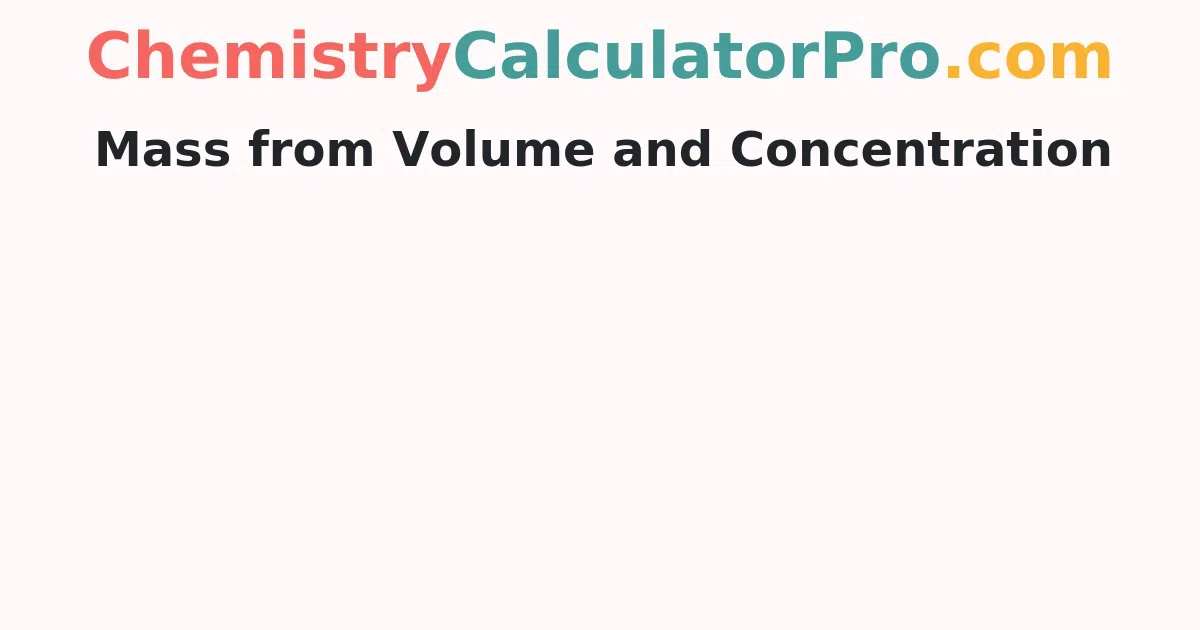Mass from Volume and Concentration
It is easy to calculate Mass from Volume and Concentration with the help of the user-friendly calculator given here. All you need to do is enter the volume, concentration of the solution, and formula weight values. Next, press the calculate button to get the mass of the solution quickly.
Mass Concentration Formula
The formula to calculate mass from volume and concentration of a solution is given here.
Concentration of a solution (g/L) = Mass of the solute (g)/ Volume of the solution (L)
Mass (g) = Concentration (g/L) x Volume (L) x Formula weight
Mass from Volume and Concentration Calculation
The detailed step by step procedure to calculate mass of the solute with concentration and volume values are here:
- Identify the volume of the solution.
- Get the solution concentration and formula weight.
- Multiply the concentration with the volume.
- Again multiply the product with formula weight to check the mass of the solute.
Example:
Am amount of 100 ml lithium chloride solution having concentration 3.45 g/ml is dissolbved in water. What is the mass of the lithium chloride?
Solution:
Volume of lithium chloride solution = 100 ml
Concentration = 3.45 g/ml
LiCl + H2O → LiOH + HCl
Formula weight = 1
Mass (g) = Concentration (g/L) x Volume (L) x Formula weight
= 3.45 x 100 x 1
= 690
Therefore, 690 g of lithium chloride is dissolved in water.
FAQ's on Mass from Volume and Concentration
1. How to find mass when volume and concentration are given?
The division of mass of the solute by the total volume of the solution is called the concentration. So, mass is the product of the volume & concentration of the solution. To find mass, multiply volume, concentration and formula weight parameters.
2. What is the formula for calculating mass concentration?
The formula to calculate the mass of the solute is mass = concentration * volume.
3. Is concentration equal to mass over volume?
For pure chemicals, mass divided by volume si equal to concentration.
4. What happens to concentration when volume increases?
The concentration is the ratio of mass to volume i.e concentration is inversely proportional to volume. So, when solution volume increases, then its concentration decreases.
